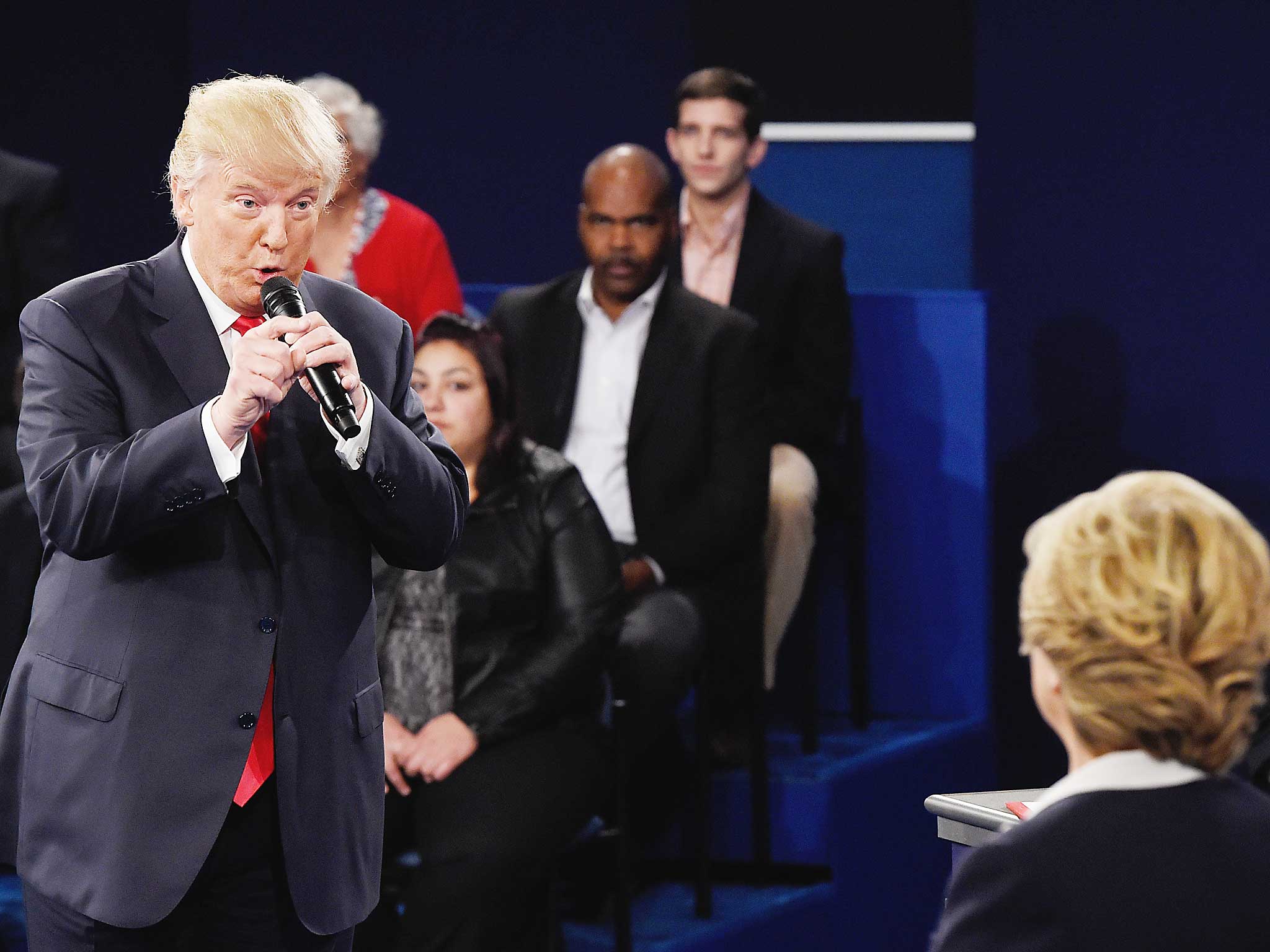Mexican peso rises after Trump-Clinton debate, pound remains vulnerable
The moves came after candidates exchanged barbs during US presidential debate following the emergence of a 2005 video on which the Republican candidate speaks crudely about women.

The Mexican peso posted the biggest gain among major currencies, and US stock futures rose, as investors saw less chance of Donald Trump winning next month's US presidential election.
The moves came after Hillary Clinton and Donald Trump exchanged barbs in the second US presidential debate following the emergence of a 2005 video on which the Republican candidate speaks crudely about women. Meanwhile sterling remained under pressure after Friday's "flash crash" in the British currency.
The peso jumped 2.2 percent to a one-month high of 18.8821 per dollar, while futures on the S&P 500 and Dow Jones industrial average were up about 0.4 percent. Trump dismissed his vulgar comments as “locker room talk” and attacked Clinton over her e-mail use and tax plan, while the Democrat candidate highlighted her career in public service and said her opponent was unfit to be president.
The peso has been a barometer of investor anxiety about the November election, falling when Trump advances in polls and gaining when he slumps. The currency climbed early in Asia trading, before the debate began, after some Republican party members called on Trump to quit the race in the wake of the video in which he talks about groping women and trying to seduce someone who is married.
“The market reaction has this takeaway that Trump’s campaign is struggling,” John Hardy, Saxo Bank’s head of foreign-exchange strategy, said in a Bloomberg Television interview from Hellerup, Denmark. “The market has seized upon this as trading the Mexican peso as some kind of financial market proxy for the political outcome of the election.”
Hardy warned investors that it’s too early to draw conclusions about what the outcome of the ballot will be, citing the surprise traders experienced when Britain voted to leave the European Union in June.
What did Donald Trump say during the second presidential debate?
Show all 8In a quick telephone poll conducted by CNN immediately after the debate, 57 percent of registered voters who watched said Clinton won the debate, while 34 percent said Trump did (the margin of error was plus or minus 4 percentage points). In a YouGov poll of registered voters who watched, 47 percent said Clinton won and 42 percent said Trump won (margin of error: plus or minus 3.9 points).
“What looked primarily like an odd debate full of personal attacks coming from both candidates was seen with a friendly eye from markets as the latest polls show Hillary Clinton cementing her lead into” the Nov. 8 election, strategists at Banco Bilbao Vizcaya Argentaria SA including Alejandro Cuadrado wrote in a report. The peso “seems cheap considering EM demand, higher oil, carry and the swings in U.S. election expectations observed over the past six weeks.”
Mexico’s exchange rate has gained 5 percent since the first debate on Sept. 26 as polls showed Clinton gaining support, but it’s still undervalued by historical norms. With less than a month before the vote, options contracts on the peso’s price around the Nov. 8 vote are showing the highest volatility expectations in about five years.
Trump, 70, said he has no intention of quitting the race. He threatened if elected to appoint a special prosecutor to investigate Clinton for her use of a private e-mail server while secretary of state.
In response to Trump’s remarks on her e-mail, Clinton said she took responsibility for it and called it a mistake. The peso posted the worst losses among major currencies in September as polls showed Trump gaining on Clinton, sparking investor concern that Mexico’s economy could be upended if he followed through on campaign pledges to renegotiate the North American Free Trade Agreement and deport millions of undocumented immigrants.
It has lost about a third of its value in the past two years as a plunge in oil prices raised concern about government finances and prompted Moody’s Investors Service and S&P Global Ratings to put a negative outlook on Mexico’s credit rating.
In the week prior to the first debate, net short positions on the peso jumped to the highest in more than 20 years of data. Traders are now slightly more optimistic, but bullish bets haven’t outnumbered bearish ones since April 2014.
The peso’s real effective exchange rate — its trade-weighted value versus a basket of other major currencies, adjusted for inflation — shows it’s undervalued compared with historical norms. The measure fell to the lowest since 2009 on Sept. 26, according to a Barclays index, before rebounding slightly. It’s still 14 percent below its five-year average.
Central bank Governor Agustin Carstens said in a Sept. 30 interview that the peso, by any measure, is undervalued. While he said he was comfortable with current interest rate levels, an extraordinary event, such as a victory for Trump, could spur a rate hike.
Bloomberg
Subscribe to Independent Premium to bookmark this article
Want to bookmark your favourite articles and stories to read or reference later? Start your Independent Premium subscription today.

Join our commenting forum
Join thought-provoking conversations, follow other Independent readers and see their replies